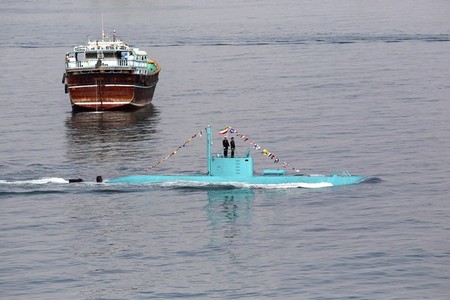The U.S. has an odd strategy for securing oil.

Hadley Gamble reports from a conference on U.S. interests in the Middle East:
U.S. delegates to the summit in Bahrain's capital Manama were pounded by questions from nations making up the Gulf Cooperation Council (GCC) over the meaning of the administration's"pivot" to Asia and the possibility of a de-escalating American presence in the Gulf, this despite the half-billion dollars in investment earmarked for the Fifth Fleet's operational base in Bahrain.But it was the specter of a rising China that pervaded much of the debate including security in the Strait of Hormuz. With over 87 percent of crude oil exports passing through the Arabian Gulf now headed to Asian markets,one question U.S.policy makers could soon be facing is whether America can or should continue to foot the bill for the security of China's oil supply.
"It's a technical problem as well as a strategic problem," says Jon Alterman, Middle East Program Director at another think tank Center for Strategic and International Studies (CSIS). "It's a global energy market that must be secured. Energy headed from the Gulf to Asia ends up fueling exports to the U.S. and America has the only navy capable of providing that security."
One reason the U.S. has the only navy capable of providing Gulf security is because none of the other stakeholders needs to make such an investment -- the U.S. taxpayer is doing it for them. It's odd that in the 21st century any outside power such as the U.S. or even China needs to be a guarantor of Gulf oil -- the Gulf states have enormous wealth and have a direct incentive to ensure that crude passes through Hormuz. The incentives align very neatly here: those that produce the oil should be responsible for securing its transit to global markets given that those regional navies are literally the best placed for such a role.
This is obviously not something that could happen over night (and in reality, it's not going to happen anytime soon since the U.S. is pouring more money into the Fifth Fleet's Bahrain base) but it's funny how a Cold War strategic imperative has morphed into an unassailable orthodoxy.
Instead of restructuring this regional bargain, the U.S. is content with a situation where it not only secures the Gulf states' oil revenue but also protect these states from Iran. In exchange, these states use the oil wealth that should be funding a regional navy to fund Islamist terrorist organizations and repress their own citizens.
(AP Photo)



